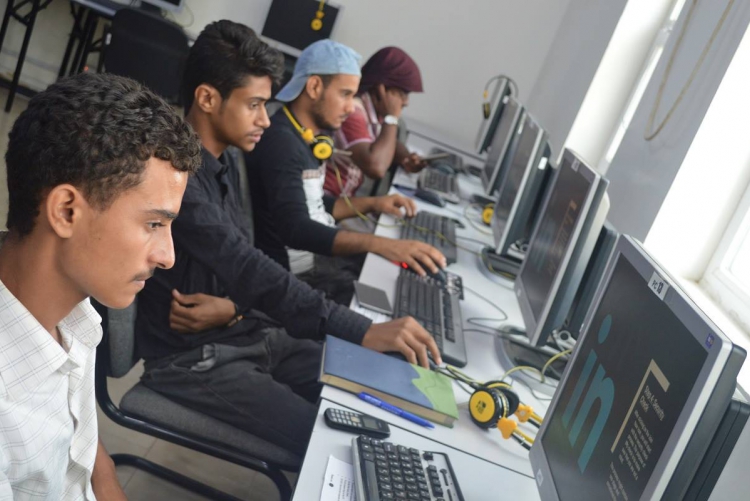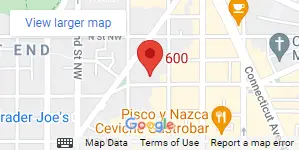The project is training 600 young men and women between the ages of 18 and 30 in a variety of vocational, professional, and business skills in areas such as computer-aided design, refrigeration, hydraulics, plumbing, medical machinery maintenance, and renewable energy (solar installation). In addition, the project links youth to mentors in their communities and supports activities that encourage their involvement in community rebuilding and the country’s restoration and recovery.
“We are seeing results already,” notes Mr. Ammar Mohamed, a Nahdhat Shabab project officer. “Trainees are being offered positions and starting jobs.”
Ahmed Khalid Saleh Asaadi is one of them. “The project helped me a lot by gaining experience in a particular vocational field that is computer maintenance," says Ahmed, who received training in computer maintenance. "I also gained some skills, including working under pressure and strengthening my English. My chance now to work is better because of the training I have got. I'm now an engineer at the beginning of the road in computer maintenance."
The project helped me a lot...My chance now to work is better because of the training I have got. I'm now an engineer at the beginning of the road in computer maintenance."
"The Nahdhat Shabab project is opening doors for women, too,” notes trainee Maha Awad, observing that the training taught her how to fix mobile phones and improved her English – “skills that make me count in my community.”
The project launched rapidly in Aden. “Youth here are very thirsty for knowledge,” says Waddah Khader, Amideast’s coordinator for the project. Equally important, he adds, are Amideast’s ties throughout the community, forged over years of working with youth through its local office. “Many in Aden’s communities appreciate the work that Amideast does in providing opportunities and skills for our young people. In fact, the most important part of my work is connecting with our many local partners, from local NGOs to the private sector, HR managers, public figures, community leaders, and the youth themselves.”
The Nahdhat Shabab project is organized around more than 30 partners from the private and public sectors. Our partners also rotate as members of a community advisory board, facilitating project activities, providing guidance on a range of topics, and serving as mentors to youth trainees. They also offer diverse perspectives on Yemen’s labor market needs and the conditions required to prepare and qualify youth.
“The Nahdhat Shabab project prepares youth, involves them in qualifying courses, and trains them in fields to meet current market needs,” the managing director of Al Aidaroos Group of Companies, one of Nahdat Shabab’s partners, observes. “We believe that we will see the results of the project at the practical level for our Yemeni companies, especially in the energy and marine sector which are important to Aden.”


